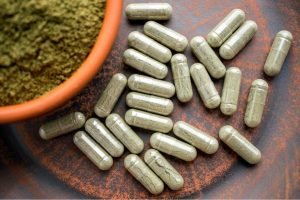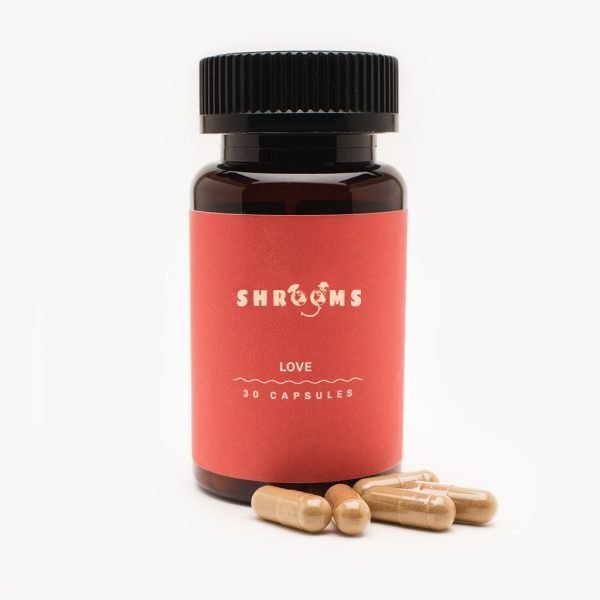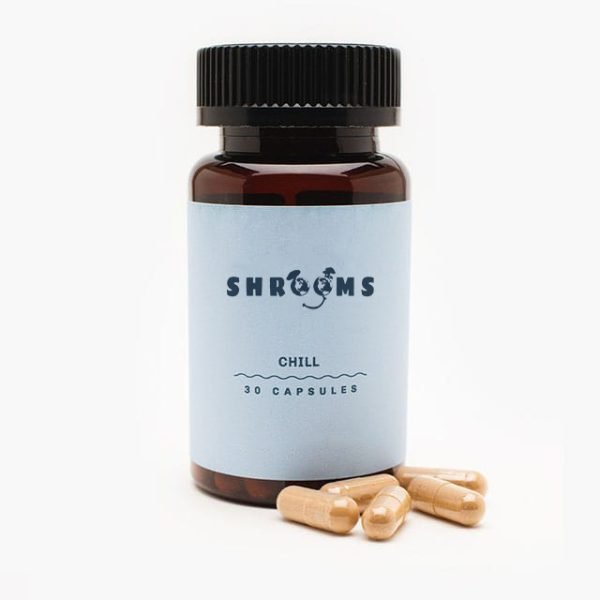Description
Social Capsules
Social Capsules.
CBD stands for cannabidiol. It’s one of many chemicals found in cannabis sativa plants, a species that includes hemp and marijuana.
Another chemical found in these plants is tetrahydrocannabinol (THC) which is responsible for the “high” associated with marijuana.
Many, but not all, CBD products are extracted from hemp plants. The amount of THC in hemp tends to be very low, whereas in marijuana plants it can be much higher.
In recent years, CBD has been marketed as a treatment for a number of medical conditions, including:
- Cancer
- Alzheimer’s disease
- Parkinson’s disease
- Anxiety
- Depression
- Chronic pain
However, the FDA has only approved one CBD medication, Epidiolex, for the treatment of two severe forms of epilepsy: Lennox-Gastaut Syndrome and Dravet Syndrome.
It also approved the medication for the treatment of seizures associated with tuberculosis sclerosis complex.
CBD is being studied as a treatment for other conditions but has not been approved as a treatment yet.
So, can CBD help anxiety?
At this time, it’s not clear how CBD treats anxiety. Some research has shown that it may work by affecting serotonin levels in the brain. Serotonin is a chemical in your body that plays a role in your:
- Mood
- Sleep
- Digestion
- Behavior
Research suggests that increasing serotonin levels can help treat anxiety.
Certain medications, such as antidepressants, work by regulating serotonin levels, and some studies suggest that CBD may work similarly to antidepressant and anti-anxiety medications.

Can CBD help fight depression?
There’s some evidence that CBD may help with depression. But there haven’t been many studies on humans.
More research is needed to say for sure. Researchers think that CBD may treat depression and anxiety in the same way: by altering serotonin levels.
CBD may be safe to take with antidepressants, but check with your healthcare provider first.
What does research say about CBD and anxiety?
Due to CBD’s rising popularity, a number of studies have examined it as a treatment for anxiety.
A 2011 study showed that CBD reduced anxiety and discomfort during public speaking in people with social anxiety disorder.
Another 2011 study found that CBD reduced anxiety symptoms in people with social anxiety disorder.
A 2015 review of 49 studies found evidence that suggests CBD could help with generalized anxiety disorder, panic disorder, social anxiety disorder, obsessive-compulsive disorder, and post-traumatic stress disorder (PTSD).
A 2019 study found that out of 11 patients with PTSD, 91% experienced reduced symptoms after taking CBD.
A study in 2019 used CBD to treat people who were struggling with anxiety and sleep. Almost 80% of people’s anxiety improved, and almost 70% reported improved sleep in the first month, but the results for sleep varied over time.
A 2017 study didn’t find any evidence that CBD improved anxiety or paranoia, and it actually increased anxiety in some people.
These results are generally positive, but there are a few things to keep in mind. First, many of these studies have small sample sizes (even the ones with negative results).
So the results don’t necessarily represent the general population. Second, these studies don’t look at the long-term effects of taking CBD for anxiety.
This means we aren’t sure if taking the drug over time consistently reduces feelings of anxiety.

At what dose should I take CBD for anxiety?
There’s no known CBD dose for anxiety. Studies have found that doses of 300 mg to 600 mg reduce anxiety in people with social anxiety disorder. But more research is needed to determine an effective dose.
When it comes to how to take it, there are many different forms and products that CBD comes in, including:
- Oils
- Capsules
- Drops
- Teas
- Vapor
- Candies
You can even get a shot of it in your latte.
Unfortunately, because these products are not monitored by the FDA, there’s no uniform labeling system or seal of approval you can look for to make sure these products are safe.
States may monitor them, but the regulatory system is patchwork and hasn’t kept up with the increasing popularity of CBD.
What are the side effects of CBD?
Studies have found that CBD causes few side effects. But people treated with Epidiolex (which is nearly 100% pure CBD) experienced side effects such as:
- Drowsiness
- Fatigue
- Decreased appetite
- Insomnia
- Diarrhea
The FDA also warns that Epidiolex caused mild liver damage to some people in clinical trials.
In addition, CBD can interact with warfarin (Coumadin), a medication that helps to prevent blood clots, and it has the potential to interact with quite a few other drugs, including:
- Antidepressants
- Benzodiazepines
- Antihistamines
- Opioids
- Antipsychotics
- Calcium channel blockers
More research is needed to understand the extent to which CBD interacts with other medications.
The effects of CBD on pregnant and breastfeeding women are also unknown, and we need more research to determine whether it’s safe for these women to use the products.
The FDA recommends that women who are pregnant or nursing avoid taking CBD products. You might be wondering whether CBD can actually increase your anxiety instead of relieving it.
Studies suggest this isn’t likely. CBD has been shown to decrease anxiety or have no effect on anxiety even at high doses, while THC decreases anxiety at lower doses and increases it at higher doses.
Theoretically, it’s possible that CBD could make you anxious if there’s a high level of THC in it. But if the THC level is low, there shouldn’t be an issue.
Will it get me high?
If the CBD is pure, you shouldn’t get high.
CBD and THC both act on the same receptors in your brain (cannabinoid receptors). But THC is thought to act on these receptors to a much greater degree than CBD, which causes the changes in thinking and perception associated with marijuana.
Additionally, the World Health Organization found that CBD does not appear to be habit-forming or cause the type of dependence seen with drugs of abuse.
However, some CBD products contain THC, whether they state it or not. So there’s a chance you could catch a buzz if the CBD has enough THC in it.
Is CBD legal?
CBD’s legal status is still evolving.
On the federal level, CBD extracted from hemp plants with less than 0.3% THC is legal, but CBD extracted from marijuana plants is illegal. That’s because it’s illegal under federal law to grow marijuana plants.
The CBD must also be produced under specific conditions. For example, the grower must be licensed and follow federal and state regulations.
States have legalized CBD to different degrees, but some still have restrictions on growth, sale, and possession. It’s best to check the laws in your state.
And once again, it’s worth pointing out that with the exception of Epidiolex, CBD products are not regulated by the FDA. That means you can’t be sure that you’re getting what’s on the label.
Even if you’re buying the same product, the dose can still vary from batch to batch due to a lack of regulation.
In fact, a study in 2017 found that nearly 70% of CBD products sold online were labeled improperly and contained more or less CBD than advertised. The products also contained more THC than advertised.
Will it show up on a drug test?
Again, it depends on how much THC is in the CBD you take.
The average drug test checks for THC. If the amount in your system exceeds the threshold of the test, you’ll have a positive result. But the tests don’t screen for CBD.
If the product you’re using is pure, you should be fine. Even if there are trace amounts of THC in the product, it probably won’t be enough to cause you to fail the test.
The bottom line
CBD burst onto the scene as a supposed “miracle cure” for a wide range of health conditions, including anxiety.
The research on it for anxiety is promising, but it’s limited by small sample sizes and a lack of information on the long-term effects. We need more research to know for certain whether it is a safe and effective treatment.
CBD is fairly easy to find and purchase, but be aware that it is not well regulated.
The ingredients and amount of CBD on the label may not match what’s in the bottle — or gummy bear. Its legality is also fuzzy, so you may want to research the laws in your state about its possession and use.





Reviews
There are no reviews yet.